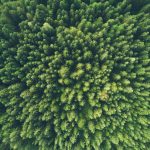Physical Address
304 North Cardinal St.
Dorchester Center, MA 02124
Physical Address
304 North Cardinal St.
Dorchester Center, MA 02124
If you can’t see the 2,500 stars that should be visible in the night sky, you’re not alone. According to the International Dark-Sky Association, only one out of ten Americans lives in an area where a truly starry night can still be seen. As much as one-third of outdoor lighting in the U.S. is wasted illuminating the sky each night, the equivalent of 23 million barrels of oil a year.
Light pollution has long been a given in densely populated urban areas, but the once dark rural skies are glowing brighter than ever. Astronomers first tagged the phenomenon of “sky glow” more than 30 years ago as urban sprawl began illuminating the horizon.
Light Pollution Hazards
Light pollution does more than waste energy and reduce the number of stars we see, also interferes with the natural cycles of many species including migrating birds and hatching sea turtles. Sky glow reduces driving visibility and recent studies have suggested that exposure to light at night during sleep may disrupt our internal clocks leading to an increase in depression and impairment in mental functioning.
How to Reduce Light Pollution
Look for fixtures that cover the top and sides of the bulb to prevent light escaping upward and sideways. Clip-on shields and shades are available to retrofit many existing outdoor light fixtures.
Dusk-to-dawn lights are a major offender in light pollution. If you have dusk-to-dawn lights, cover them with a clip-on shield or for a cheap, quick fix, spray the inside of the light cover with three coats of high-heat black paint.
Reduce the wattage of bulbs using the lowest watt that provides adequate lighting. Consider switching to energy-saving fluorescent bulbs.
Use lights only when you need them by installing motion detectors on outdoor lights and aiming them downward to reduce unwanted activation.
To get a list of Dark Sky Friendly Light Fixtures or to purchase night-sky friendly lighting, visit the International Dark-Sky Association.


